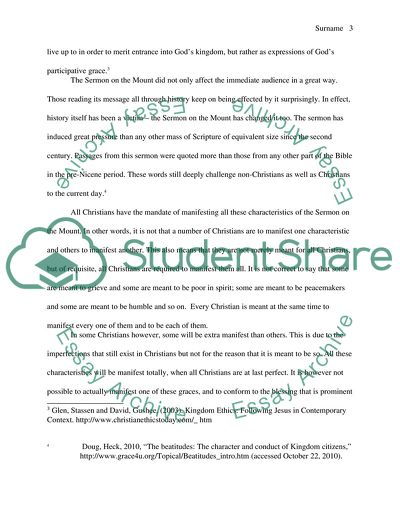Cite this document
(The Ethical Standards of the Teaching of Jesus Christ Research Paper, n.d.)
The Ethical Standards of the Teaching of Jesus Christ Research Paper. Retrieved from https://studentshare.org/religion-and-theology/1743483-the-ethical-standards-of-the-teaching-of-jesus-christ-sermon-on-the-mount
The Ethical Standards of the Teaching of Jesus Christ Research Paper. Retrieved from https://studentshare.org/religion-and-theology/1743483-the-ethical-standards-of-the-teaching-of-jesus-christ-sermon-on-the-mount
(The Ethical Standards of the Teaching of Jesus Christ Research Paper)
The Ethical Standards of the Teaching of Jesus Christ Research Paper. https://studentshare.org/religion-and-theology/1743483-the-ethical-standards-of-the-teaching-of-jesus-christ-sermon-on-the-mount.
The Ethical Standards of the Teaching of Jesus Christ Research Paper. https://studentshare.org/religion-and-theology/1743483-the-ethical-standards-of-the-teaching-of-jesus-christ-sermon-on-the-mount.
“The Ethical Standards of the Teaching of Jesus Christ Research Paper”, n.d. https://studentshare.org/religion-and-theology/1743483-the-ethical-standards-of-the-teaching-of-jesus-christ-sermon-on-the-mount.


